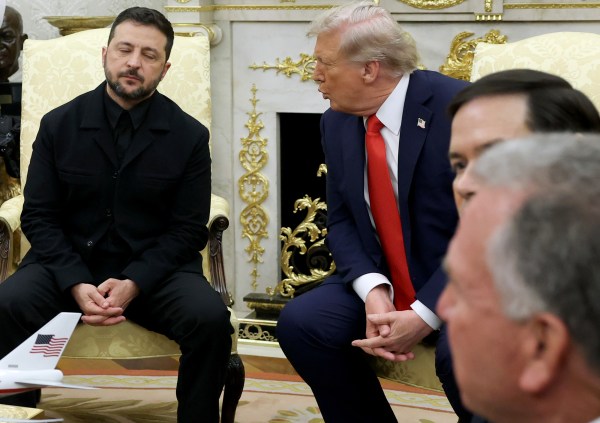The Senate is expected to pass the United States Innovation and Competition Act of 2021 before breaking for the Memorial Day recess. The bipartisan package would authorize large funding increases for federal research and development. While the bill’s future in the House of Representatives is unclear, the ongoing debate on Capitol Hill has revealed strong bipartisan support for protecting American campuses and research centers from nation-state threats.
The centerpiece of the legislation is the Endless Frontier Act, bipartisan legislation sponsored by Senate Majority Leader Chuck Schumer and 13 co-sponsors. The act would expand the mission of the National Science Foundation to include funding for technological innovation and authorize large funding increases for NSF. The package also includes more than $50 billion in appropriations to promote the American semiconductor sector, including to pay for new programs authorized by the National Defense Authorization Act in December. A central purpose of the overall package is to compete with the Chinese government’s industrial policy and plans to achieve technological superiority in the coming years.
But a key question about the legislation as it advances on Capitol Hill is whether the final package will include new security requirements to protect research institutions from ongoing nation-state espionage exposed by recent bipartisan investigations led by Ohio Sen. Rob Portman. Failing to require colleges and universities to update their security measures could allow foreign adversaries to steal sensitive information about the innovative new technologies funded by new federal R&D investment.
The Biden administration and congressional leaders have a unique opportunity to achieve bipartisan consensus by pairing historic federal investments in research and development with security measures to protect American innovations from nation-state espionage. But they must overcome resistance from American universities that are opposed to new reporting requirements and potential restrictions on foreign students studying in the United States.
Recent Bipartisan Investigations Exposed Research Centers’ Vulnerabilities
In 2019, the Senate Permanent Subcommittee on Investigations, led by Sen. Portman and Delaware Democratic Sen. Tom Carper, exposed China’s talent recruitment programs, which “incentivizes individuals engaged in research and development in the United States to transmit the knowledge and research they gain here to China in exchange for salaries, research funding, lab space, and other incentives.” The PSI investigation highlighted examples of sensitive intellectual property being stolen by the People’s Republic of China from American research centers and found that federal agencies overseeing R&D investments did not have adequate security measures in place. For example, the National Science Foundation did not require security reviews of potential grantees or prohibit NSF-funded researchers from participating in foreign government talent recruitment programs. “The federal government has failed to stop China from acquiring knowledge and intellectual property from U.S. taxpayer funded researchers and scientists. Nor do federal agencies have a comprehensive strategy to combat this threat,” the subcommittee concluded.
An earlier bipartisan PSI investigation by Portman and Sen. Tom Carper documented Beijing’s strategy of promoting Confucius Institutes at American colleges and universities, and described how these centers, which are controlled by the Chinese government, pose a security threat to the United States. In February, Portman, along with Sens. Mitt Romney, Marco Rubio, and Chuck Grassley, urged President Biden to implement a rule proposed by the Trump administration requiring educational institutions to disclose their contracts with Confucius Institutes.
There have been more than a dozen federal arrests or indictments of individuals associated with American higher education institutions with links to the People’s Republic of China since the beginning of 2020. For example, Dr. Charles Lieber, the chair of Harvard University’s Chemistry and Chemical Biology Department, was arrested and charged related to making false statements about his relationship with the Chinese government. According to the Justice Department, Lieber became an asset of the PRC through the Thousand Talents program, including receiving a $50,000 monthly stipend along with other financial payments. The research center at Harvard that Lieber led had received $15 million in federal research grants.
Bipartisan Measures to Secure American Research Centers and Higher Education
Schumer included two new bipartisan bills to secure American research centers and higher education institutions from potential nation-state espionage and influence operations.
The Safeguarding American Innovation Act, sponsored by Portman and 17 others, would establish a new council within the Office of Management and Budget to improve the security of the federal grantmaking process and update the application process to create a penalty for individuals who fail to disclose financial relationships with foreign governments. The bipartisan bill would also authorize the State Department to reject visa applications of foreigners who pose a risk of stealing intellectual property and require research institutions to disclose whether visitors will have potential access to sensitive technologies. The bill would also change Department of Education rules to require colleges and universities to report foreign gifts of $50,000 or more.
The Strategic Competition Act, sponsored by Chairman Bob Menendez (D-New Jersey) and Idaho Republican Jim Risch of the Senate Foreign Relations Committee, would expand the authority of the Committee on Foreign Investment in the United States, to include reviews of foreign investments, including gifts and contracts, in higher education institutions.
College and University Concerns About Proposed Security Measures
Organizations representing American colleges and universities have expressed opposition to these new security measures. They worry that new security requirements will discourage foreign students from studying in the United States and that lowering financial disclosure requirements for foreign payments would result in thousands of additional reports without exposing real security vulnerabilities. More than a dozen college and university associations led by the American Council on Education wrote to the Senate Homeland Security and Governmental Affairs Committee last summer warning that the legislation would “impede international partnerships, discourage international students from attending our institutions, and will complicate efforts to encourage transparency.”
In a follow-up May 4 letter, ACE Senior Vice President Terry W. Hartle argued that the U.S. Department of Education has never identified “malign foreign influence” through existing financial reporting in more than 40 years. Hartle also argued that the State Department and other agencies already have legal authorities to deny visas and enforce export control laws to prevent foreign technology transfer through academic exchange programs.
American colleges and universities have a strong financial motivation to ensure that foreign students continue to enroll. More than 1 million foreign students attend American higher education institutions during a typical year, often paying full out-of-state tuition and contributing an estimated $44 billion to the economy. But the Congressional Budget Office predicted that “few people would be affected” by the new security measures according to State Department information. It’s unlikely that college and university foreign student enrollments would change significantly.
Associations of colleges and universities have also expressed strong opposition to expanding CFIUS’s mission to include overseeing foreign investments in academia. In an April 20 letter to the Senate Foreign Relations Committee sponsors, the associations warned that expanding CFIUS’s mission would lead to less foreign funding. “[D]onors and research collaborators are likely to seek out non-U.S. partners rather than spend months awaiting a government review with results and timing that will be hard to predict,” the associations warned. “This will hamper the ability of U.S. institutions to invest in research at the very moment when our nation’s competitiveness is facing great challenges.”
But the bill’s sponsors reason that expanding CFIUS’s authorities is necessary to counter Beijing’s growing influence in American higher education. “CCP influence undermines freedom of speech and debate on campus, and poses real risks of intellectual property theft,” explained Risch. “Expanding the scope of the Committee on Foreign Investment in the United States to review foreign contributions in U.S. higher education institutions will give us the ability to address these issues.”
A Rare Area of Bipartisan Agreement in 2021
The current legislative debate in the Senate highlights two promising areas of bipartisan agreement. The United States needs to invest more in R&D and key technological sectors to compete with China. At the same time, the federal government must do more to protect American colleges and universities from the threat of nation-state espionage and influence operations.
When the Senate passes the bipartisan package, as expected this week, the debate will move to the House of Representatives. In March, the chair and ranking member of the House Science Committee introduced the National Science Foundation for the Future Act, which offers an alternative approach to reauthorizing and expanding NSF’s mission and funding. It’s unclear whether Speaker Pelosi will take up the Senate legislation. She may allow House committees to develop their own legislation and work through the conference process. In the meantime, the Biden administration has an opportunity to begin tightening its oversight of federal investments in research and development and protect American higher education and research centers.
But the current Senate legislative debate has been clarifying in one key respect. Neither Democrats or Republicans believe American campuses and research centers are secure from foreign threats. Closing these vulnerabilities is a rare opportunity for bipartisan agreement and reform in 2021.
Dan Lips is vice president of national security and government oversight with Lincoln Network.






Please note that we at The Dispatch hold ourselves, our work, and our commenters to a higher standard than other places on the internet. We welcome comments that foster genuine debate or discussion—including comments critical of us or our work—but responses that include ad hominem attacks on fellow Dispatch members or are intended to stoke fear and anger may be moderated.
With your membership, you only have the ability to comment on The Morning Dispatch articles. Consider upgrading to join the conversation everywhere.